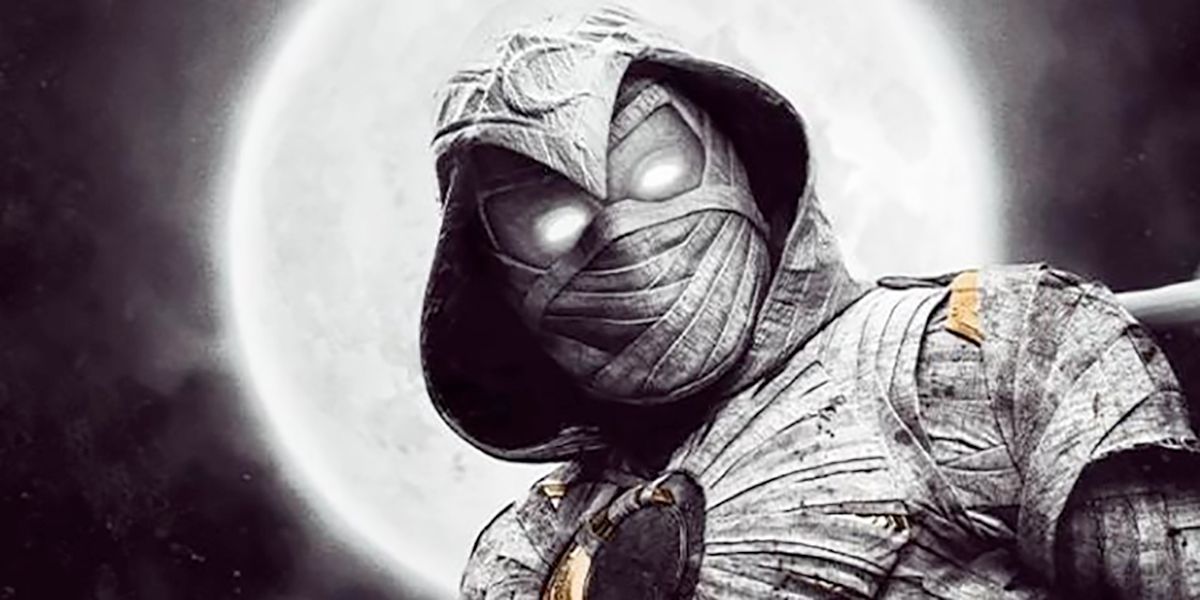Disney+'s Moon Knight does something that none of the other Marvel Studios series have shown interest in pulling off: it doesn't shy away from showing realistic violence. Although the Marvel Cinematic Universe contains superpowered beings that can bend time and cars and punch holes through spaceships, the MCU usually keeps its battles family-friendly.
However, Moon Knight's opening episode makes it clear that this series cares about showing the aftermath of otherworldly power and the destruction it brings to humanity. Befitting a Marvel character whose former work was as a mercenary and who debuted in the 1975 horror comic Werewolf By Night #32, Oscar Isaac's Marc Spector/Steven Grant/Mr. Knight kills often. Egyptian director Mohamed Diab even pans to blood splatters on cement, pushing audiences to rethink what it means to root for a character who murders.
It's tricky to say too much of Moon Knight's setup without giving away plot details. Suffice to say, it's a story about a man with Disassociate Identity Disorder named Steven Grant, who learns he's more than just a gift store clerk at a museum. What follows is an entertaining mystery that invites Egyptian gods, monsters, and a self-proclaimed altruistic villain.
While there's plenty of violence to behold in Moon Knight, it's not glorified. Diab frames Steven Grant's confusion and shock at the destruction his alter(s) cause(s) as a way to inject situational comedy into the storyline more akin to a fun slasher. As the director of Moon Knight Episode 1, 3, 5, and 6, Diab brings unnerving horror to the forefront while never losing sight of dark humor along the way. Under his direction, Isaac's Steven Grant, a baffled and self-described "knob," reaches compelling comedic heights that'll charm fans. Moon Knight head writer Jeremy Slater deserves additional praise for how seamless it feels to follow Grant along his path to learn who and what he is without over-relying on heavy exposition.
Following in Legion's footsteps, Moon Knight uses visions, mirroring, time-lapses, and more to set up its unique take on showing Disassociate Identity Disorder on a cinematic scale. It doesn't lean as much into trippy VFX work as that FX series did, but there are definitely some timey-wimey shenanigans to behold. Fellow Moon Knight directors Justin Benson and Aaron Moorhead shine when carving out the show's key worldbuilding scenes so we understand the logic of Moon Knight's powers. While there are certainly monsters in Moon Knight, their presence never looms too large as the show uses them like action set-pieces to kickstart interpersonal dilemmas for Grant/Spector to sort out together. In that light, it's more in line with del Toro's Hellboy, indulging in bringing creatures into scenes as visual candy that ratchets up the scene's creepy feel and brings new adversaries to punch. However, it's always a character-based story with true repercussions.
Of course, of the entire Moon Knight cast, it's Isaac who is playing on many, many levels. Watching him bounce between -- and often argue with -- his alters is a joy to behold and evokes some romping fun that feels reminiscent of David Tennant's Doctor Who. May Calamawy's Layla El-Faouly provides a wonderful scene partner for Isaac, bringing just the right amounts of playful challenge and nerve to their thrilling adventures.
Based on the four episodes available to review, it's impossible to know if the story lands its central mystery. One thing is for certain though, Moon Knight is thoroughly entertaining in its design, concept, look, and feel that it brings to the MCU as a whole. There are so many interesting aspects of this show thus far that it'd be hard not to root for a Season 2 to dive deeper into the many questions and contradictions it brings to the surface.

